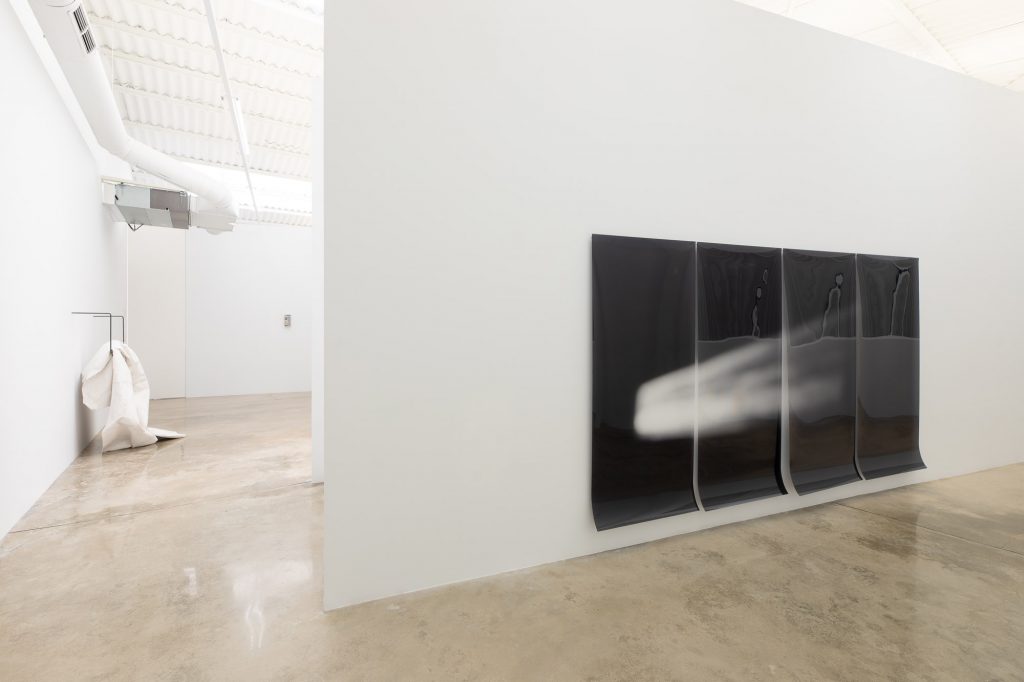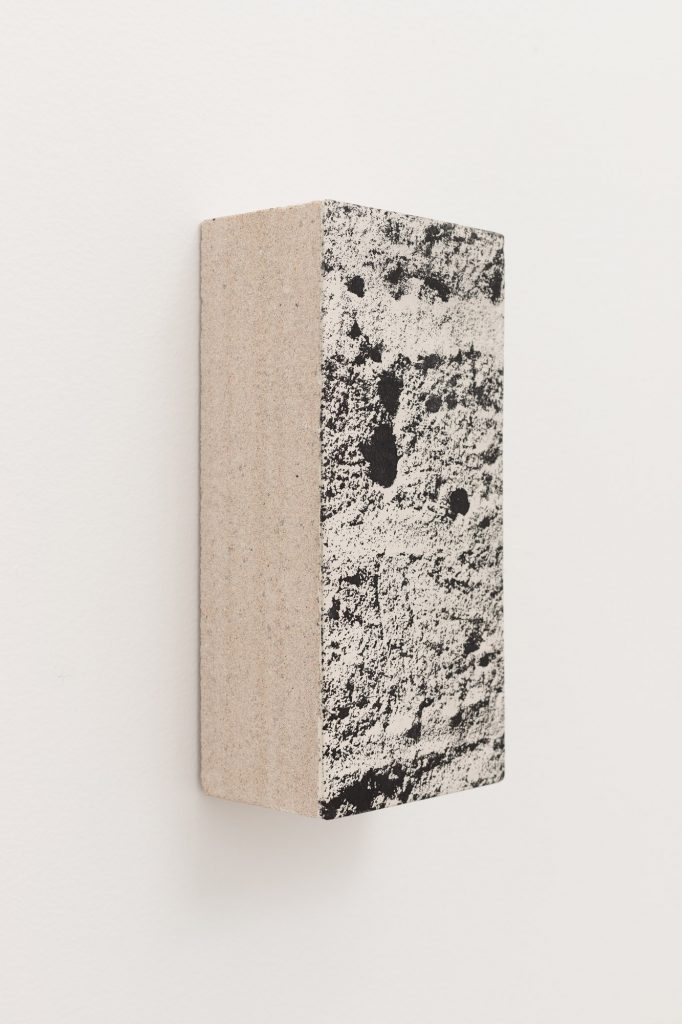
Press Release
Atemporality is a term that I would be tempted to use to describe Valerie Krause’s works.
Perhaps because of her choice of materials such as steel, jute and plaster and the serene range of greys, blacks and whites her pieces are hard to be linked to a specific period.
But the title of Krause’s solo show suggests I should avoid linking the artist’s practice to this term. The way the materials have structured the exhibition leads to thoughts of what is yet to happen, to immerse oneself into the uncertainty of the future. The works titled O.T. express a state of ‘being on the verge’ of something, of that slight vertigo that we feel when there is an unfinished movement towards an unknown space.
The jute piece stands in a dichotomic position, sustaining the tension between the gravity pulling down and the touch with the steel pulling it up. At the same time, the wrinkles and traces left by the artist’s manipulation of the fibre, causes the works to be present in space while simultaneously looking towards the past.
Thinking about it twice, time is in fact a quality that defines Krause’s sculptures. The past is visible in the vestige of textures that were in contact with one another, the future is hinted by the structure of the works, and the present is squeezed between these two, in the impermanent moment of this exhibition, Temporary Texture.
The word solid also came to mind when I first discovered Valerie’s works. And again, I realise that it would convey only a partial description of her practice. What purpose would it serve to use a word with such rigid connotations?
Solid would refer to the artist’s ability to infuse a balanced corporeality to the works through materials and structure. Krause’s genuine appreciation for everyday materials is perceivable throughout the exhibition space. This harmony is only achieved by giving the same importance to what we see and what we don’t see. Sculpture’s everlasting question of the absence.
Sculpting is linked to erosion, to the action of taking material off from a surface. Sculptors seem to have a visual memory of what is extracted, of the movements followed, of their invisible marks. Like the drawing left on the retina when one looks directly to the sun and closes the eyes. It is all a matter of combining those ghost traces with the tangible solid material.
And still, despite the rational balance of her installations, the way Krause works in the studio has a lot to do with intuition. It’s all about creating an atmosphere that allows movements to flow and the right dynamism to be transferred to the pieces, so they are able to act as open questions more than as unmovable statements.
This is achieved by focusing on how to transfer intangible things to a tangible realm. In works like Mauerstein or Projection she wanted to address this question by working with a digital process while keeping the physical dimension of the medium. For Projection she worked with multiple projections of blurred light and photographs on the wall of her studio. The outcome is somehow abstract, the resulting image of different layers of thinking, of various decisions. Once again, the medium has rationalised thought.
In Room 2, the space that is probably the most versatile at L21 Gallery, the exhibition offers countless readings. The structure of the show also plays with the possibilities of encounter and dialogue, placing the pieces in strategic points so they are visible from other exhibition rooms. All in all, thanks to that structure and to the reluctance of the works to fit into the category atemporal and solid, the project manages to transcend its current state to encapsulate the possibility of change.
-Aina Pomar Cloquell
Region
Location
-
Carrer Dels Germans García Peñaranda 1a, 07010 Palma, Balearic Islands, Spain


Add a review